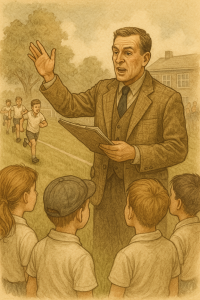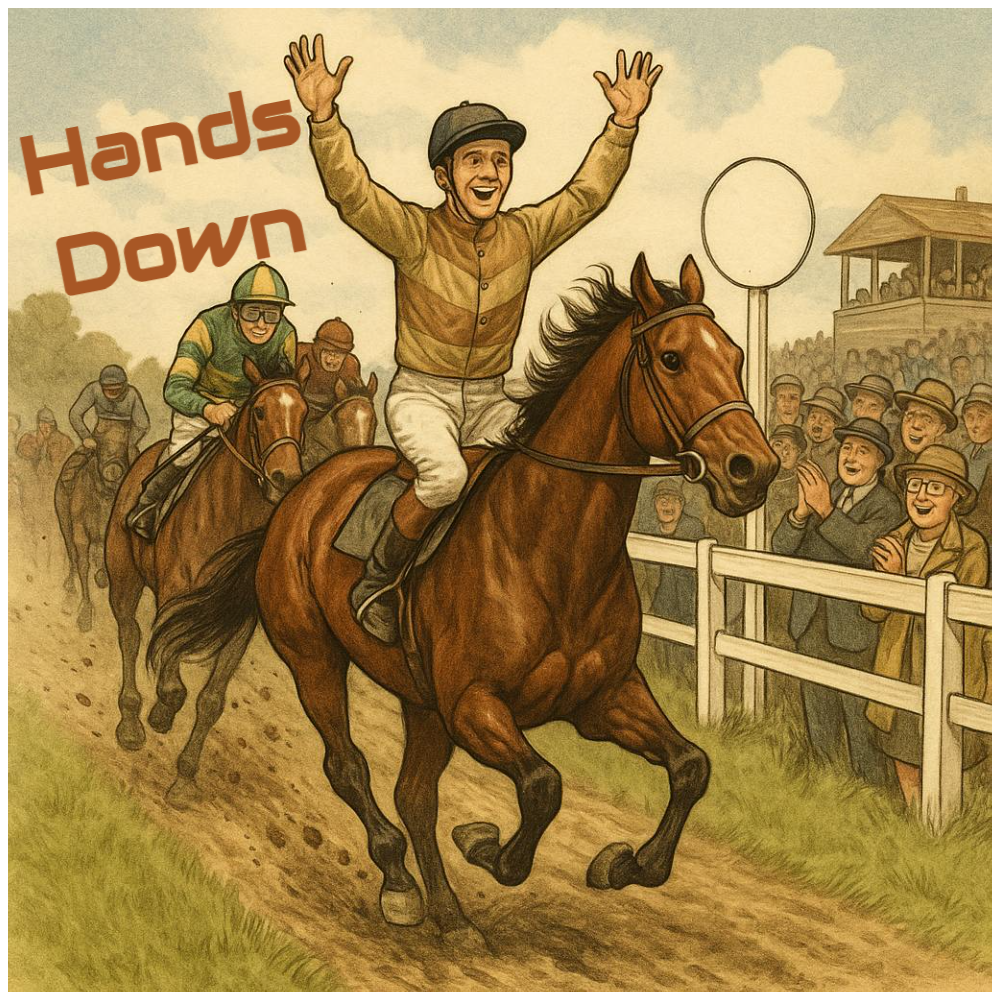Did you know the phrase “hands down”—as in “He won hands down”—comes not from argument, or applause, or anything to do with opinions, but from horse racing?
Yes, really.
In the 19th century, when a jockey’s horse was so far ahead of the field that no challenge remained, he could literally drop his hands, relax his grip on the reins, and ease into victory—hands down. No need to push. No need to fight. The race was already won.
That same confidence and inevitability is what we channel when we say something was achieved “hands down” today.
It took me back to my own school sports day, somewhere in the dusty archives of Llanbradach’s primary fields. One of our teachers—Mr Roderick, I think—used the phrase after a classmate breezed past the finish line. “He won that hands down!” he barked, clipboard in hand, trousers probably too tight. We didn’t understand it then, but it stuck. The rhythm of it. The certainty.
Looking back, phrases like this are more than idioms—they’re mini time machines.
They remind us how much of our modern speech is grounded in specific, physical events—racing, sailing, blacksmithing, war. And they make our language rich, colourful, and often a bit quirky.
So the next time someone wins an argument, aces a test, or finishes a job without effort, and you say they did it hands down—you’re echoing a jockey’s easy gallop toward the finish line.
No whip. No kick. Just a confident coast to glory.
Bonus Curiosity
Other racing idioms still in use:
-
Front runner – someone leading the pack
-
Dark horse – an unexpected winner
-
Neck and neck – too close to call
Isn’t it fascinating how a muddy racetrack helped shape our vocabulary?



